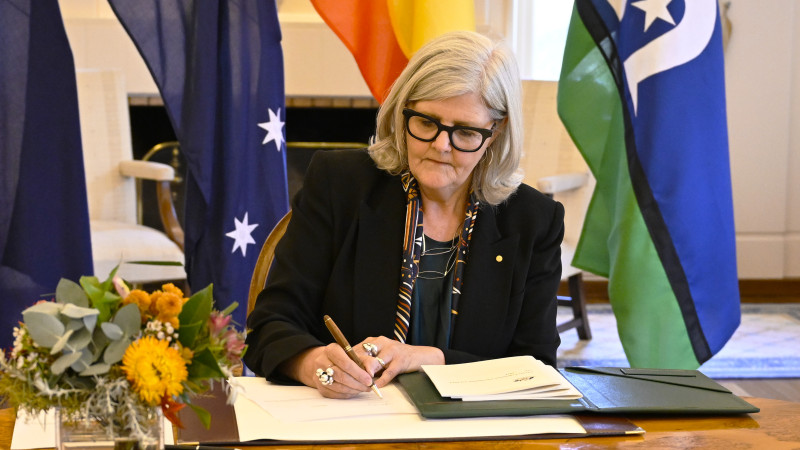Can the Governor-General suggest changes to a bill or refuse to sign it?
Hi Dinky. That’s a great question!
To become a law, a bill passed by the Parliament must be given Royal Assent – be signed into law – by the Governor-General. Under section 58 of the Australian Constitution, the Governor-General can:
- refuse to sign the bill
- send the bill back to the Parliament with suggestions for amendments – changes.
No Governor-General has refused to sign a bill. Occasionally they have returned a bill to the Parliament because of drafting errors. Once the Parliament fixed these errors, the Governor-General assented to the bill.
In giving Royal Assent, the Governor-General’s job is to check that the Parliament followed the Constitution when it passed the bill. If the Governor-General suggests an amendment to a bill, it is up to the Parliament to decide if it agrees to the amendment.
The Governor-General signing a bill

Mel Adams/DPS AUSPIC
Description
The Governor-General signing a bill giving it Royal Assent. After a bill is signed by the Governor-General it becomes an Act of Parliament – a law.
Permission should be sought from DPS AUSPIC for third-party or commercial uses of this image. To contact DPS AUSPIC email: auspic@aph.gov.au or phone: 02 6277 3342.